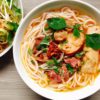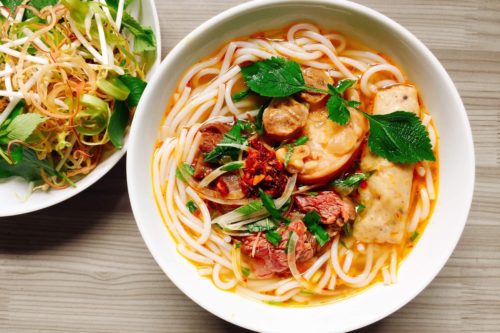Herbs and Spices You Should Stay Away From

T he spice trade has dominated much of the world throughout history. Nowadays, globalization has helped make herbs and spices accessible almost anywhere in the world.
That said, not all spices are always healthy for you. On the contrary, some spices can actually be detrimental to your health.
But how do you know which ones to avoid? While there is no hard and fast rule for avoiding herbs and spices, there are some herbs and spices which are known to have unpleasant side effects across the board.
Stick with us, and we’ll tell you about five herbs and spices you should stay away from. But first, it helps to know the difference between the two.
What Is The Difference Between Herbs and Spices?
While herbs and spices may sound similar at first, there are important differences that distinguish the two from one another.
Simply put, a spice is a part of a plant used for cooking. The spice can either add flavor, aroma, or even color to food. Spices can come from the root, dried bark, fruit, or even the seed of a plant.
Herbs are also plant material, except they may also be used for medicinal, cosmetic, or even ritual purposes in addition to cooking. Herbs can be both fresh and dried, but unlike spices are the plant’s leaves, stems, or even the flowers.
5 Herbs and Spices To Avoid
Now that you know what herbs and spices are, here are 5 herbs and spices you should avoid. Their effects can range from mild, to severely toxic, depending on the dose consumed.
Nutmeg
First, we have nutmeg, a spice made from the dried seed of the Myristica tree.
Originally from Indonesia, nutmeg has made waves around the world. It is a popular spice added to anything from eggnog to Biryani.
That said, nutmeg also has a hidden downside: its chemical content. Nutmeg contains both Myristicin and Elemicin, two chemical compounds that can cause unpleasant side effects. These range from nausea, headaches, confusion, and even hallucinations.
The good news is that you won’t really feel these effects from the normal doses of nutmeg used in traditional recipes.
Mace
Mace, like nutmeg, is also a spice from the Myristica tree.
Unlike nutmeg, which is the dried seed of the fruit, mace is the fruit surrounding the seed. The mace is peeled off from the ripe fruit and dried, leaving behind the nutmeg seed.
Mace is another popular spice used in traditional South Asian cooking. However, it also has similar chemical compounds to those found in nutmeg. Again, while a low dose isn’t typically harmful, higher amounts of Mace can produce similar states to nutmeg poisoning.
Datura
You’ve probably seen Datura flowers popping around, either in a garden or in the wild.
While this herb may look pretty, it also has a hidden dark side: high doses of Datura can lead to delirium, hallucinations, and full-blown psychosis.
Also known as moonflower, devil’s weed, or hell’s bells, Datura has no culinary uses. As such, you should avoid consuming this herb at all costs.
If you have pets or young children, keep them away from any Datura plants you might see growing nearby.
Cinnamon
Now, you may be surprised to see cinnamon on this list. After all, how could this harmless spice be harmful?
Despite being a delicious addition to cinnamon rolls, frappé, and even biryani, cinnamon can also be harmful in excess.
While low doses of cinnamon are popular in traditional medicine and have known health benefits, higher doses can have unpleasant side effects. Excessive cinnamon consumption can cause gastrointestinal upset, allergic reactions, or even liver damage.
Salvia Divinorum
Not to be confused with Salvia Officialanis, otherwise known as sage, Salvia Divinorum is a herb that can have wild effects when consumed.
Having no culinary purpose, Salvia Divinorum has instead traditionally been used for ritual and healing purposes. Healers or shamans chew, smoke, or brew Salvia Divinorum into a tea.
Common side effects of consuming Salvia include dissociation, depersonalization, and hallucinations.
Final Thoughts
When it comes to herbs and spices you should stay away from, tread cautiously. Some of these can have unpleasant side effects in excess, while you should avoid others entirely.
Just remember: the dose makes the poison. If you’ve ingested a potentially toxic substance, contact poison control or seek medical assistance immediately.








